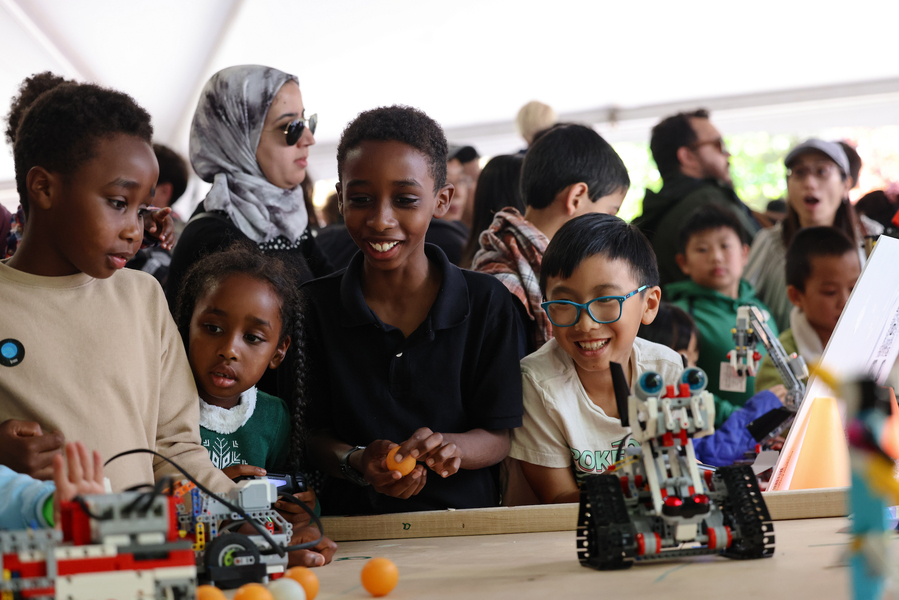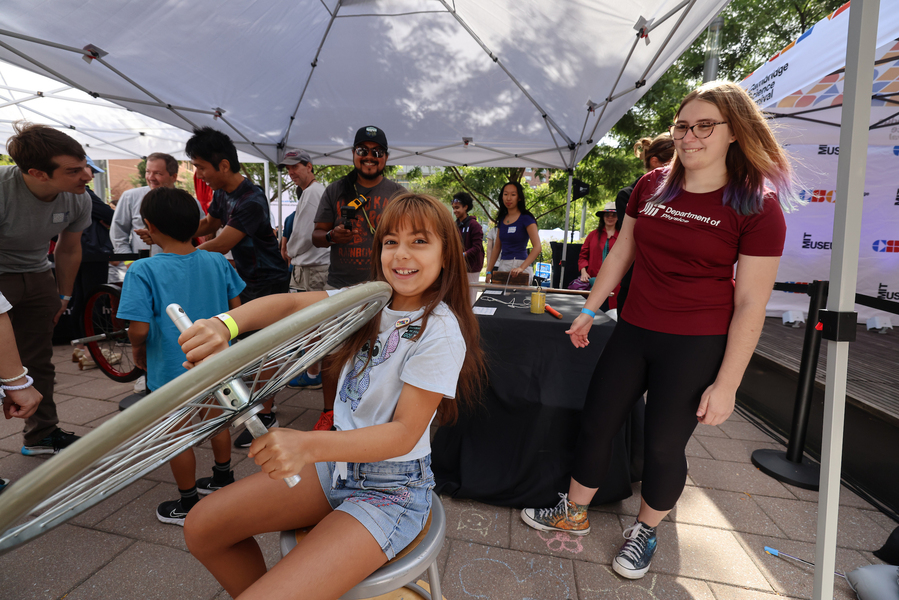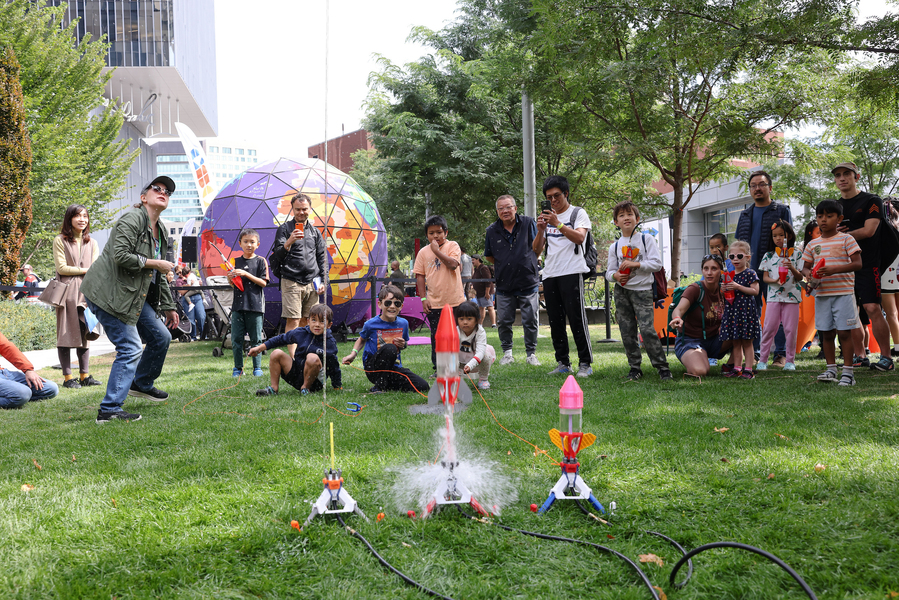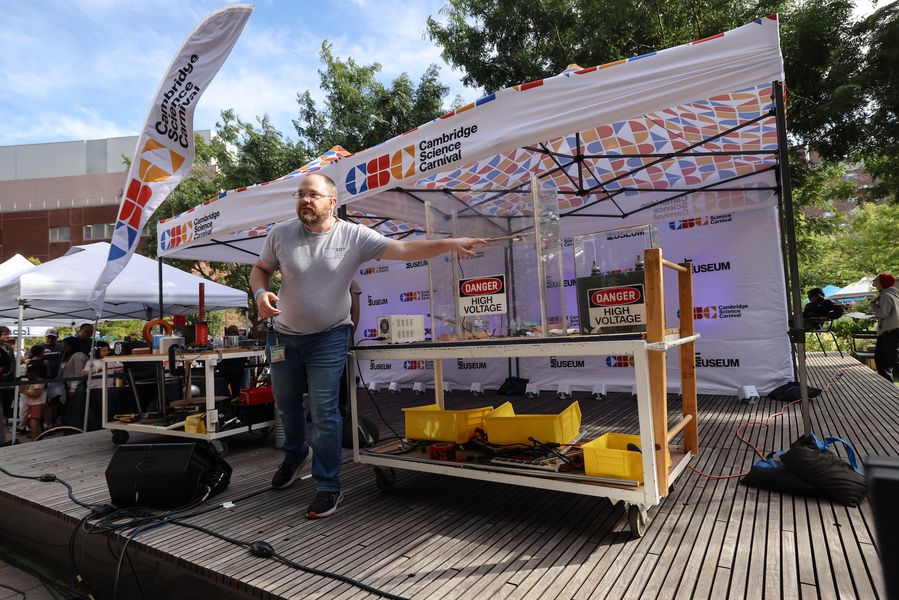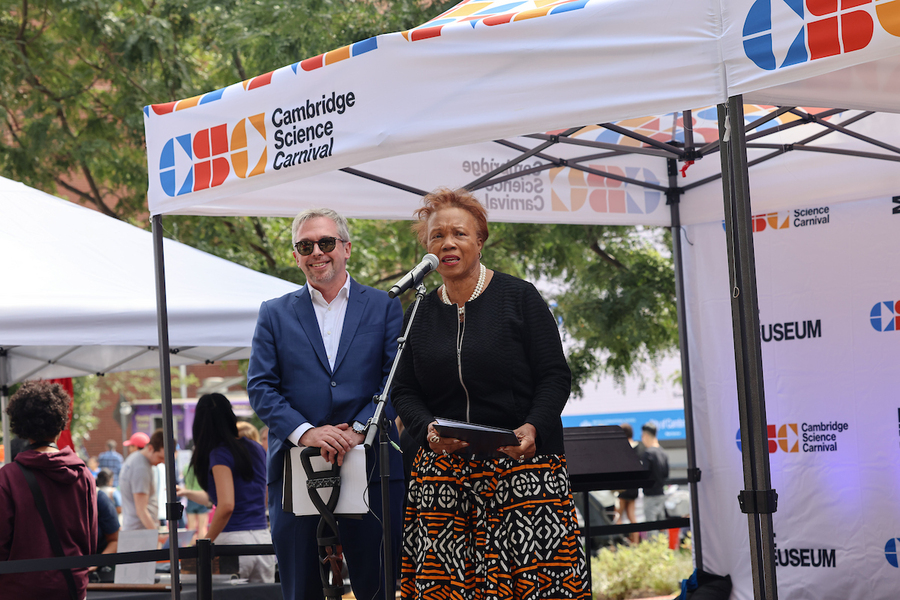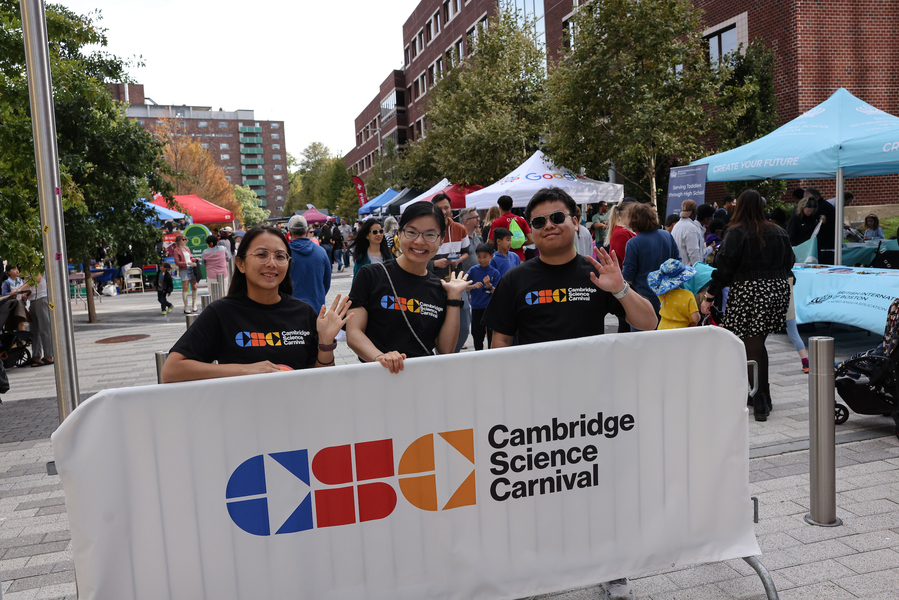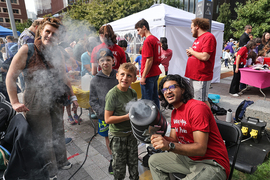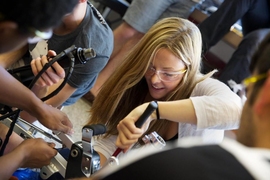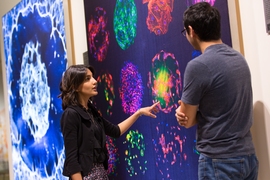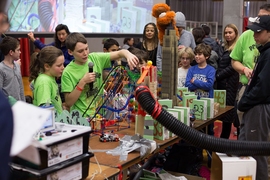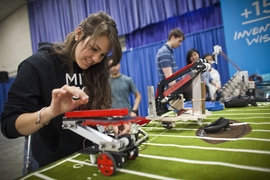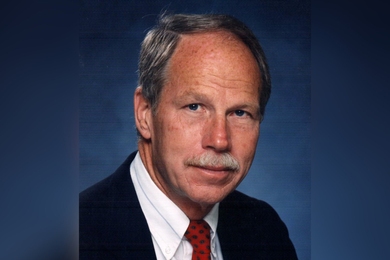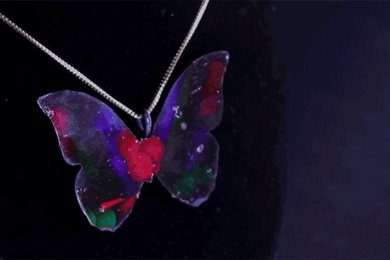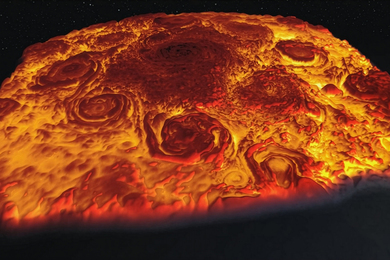Audio
Back and better than ever, the Cambridge Science Carnival, an annual free family-friendly science extravaganza, was held on Sunday, Sept. 21, at the Kendall/MIT Open Space.
Founded by the MIT Museum in 2007, and organized with the support of MIT and the City of Cambridge, the 2025 event drew approximately 20,000 attendees and featured more than 140 activities, demonstrations, and installations tied to the topics of science, technology, engineering, arts, and mathematics (STEAM).
Among the carnival’s wide variety of activities was the popular robot petting zoo, an annual showcase involving more than a dozen companies and local robotics clubs, including FIRST Tech Challenge and FIRST Robotics Competition. Participants were invited to engage with a range of different robots, from building with LEGOs and erector sets to piloting underwater robots to learning about the science of automation.
“Every exhibit and every moment of discovery today reinforces why Cambridge remains a global leader in STEAM,” Cambridge Mayor Denise Simmons said in her remarks at the event. “The creativity, ingenuity, and joy on display here today are a powerful reminder that science isn’t just for labs and lecture halls — it’s for everyone.”
Other activities included an appearance from the popular kid-friendly podcast “Tumble Science,” with co-host Marshall Escamilla testing fans’ knowledge of different STEAM topics drawn from “Tumble Science.” Clark University’s smoke-ring air cannons were a particular hit with the under-7-year-old set, while “Cycle To Science” showed off a gravity-defying bicycle wheel that, while spinning, was suspended on one side by a simple piece of string. Attendees also enjoyed live music, food trucks, and activities exploring everything from pipette art to the chemistry of glass.
At the robot petting zoo, FIRST Robotics volunteer mentor Dominique Regli reflected on the event as someone who was herself first inspired by similar festivals more than a decade earlier.
“Seeing kids of all ages interact with the robots made me think back to when I was a seventh grader, and how getting to see some of these robots for the first time was truly life-changing for me,” said Regli, who has been involved with FIRST Robotics since 2018 and is now an MIT computer science PhD student and affiliate of the Computer Science and Artificial Intelligence Laboratory (CSAIL). “These types of events are so important to expose students to what's possible.”
Throughout its history, a key aspect of the carnival has been MIT’s close collaboration with the City of Cambridge, which ran several activities. Cambridge Public School teachers led and the Public Works Department hosted a “Trash or Treasure” activity, which helped teach kids about recycling and composting. The carnival is a major contribution to the Institute’s objective of connecting the MIT ecosystem with Cambridge residents and local communities.
“Cambridge is one of the world’s leading science cities, with more Nobel laureates per capita than any other city on the planet,” says Michael John Gorman, director of the MIT Museum. “The Cambridge Science Carnival is a beloved day in the Cambridge calendar which brings science out of the labs and onto the streets.”
With a focus on engaging families and kids ranging from kindergarten to the eighth grade, one important outcome this year was to give undergraduate and graduate students the opportunity to showcase their work and hone their skills in clearly communicating science concepts to the public. There were over 50 activities led by MIT students, as well as participants from other local schools such as Boston College and Boston, Clark, Harvard, Northeastern, and Tufts universities.
Typically organized as part of the annual Cambridge Science Festival, this year the Cambridge Science Carnival returned as a standalone event while the larger festival undergoes a strategic transition for its relaunch in 2026. The MIT Museum offered free admission during the carnival and is always free to Cambridge residents, as well as active military, EBT cardholders, members of the Massachusetts Teachers Association, and MIT ID holders.
“For MIT researchers, discovery often happens in a lab or a classroom, but the truth is, the spark of discovery can happen anywhere,” said Alfred Ironside, MIT vice president for communications, in remarks at the event. “That’s really what today is about: feeding curiosity, encouraging questions, and showing that science is not locked away behind closed doors. It’s for everyone.”
